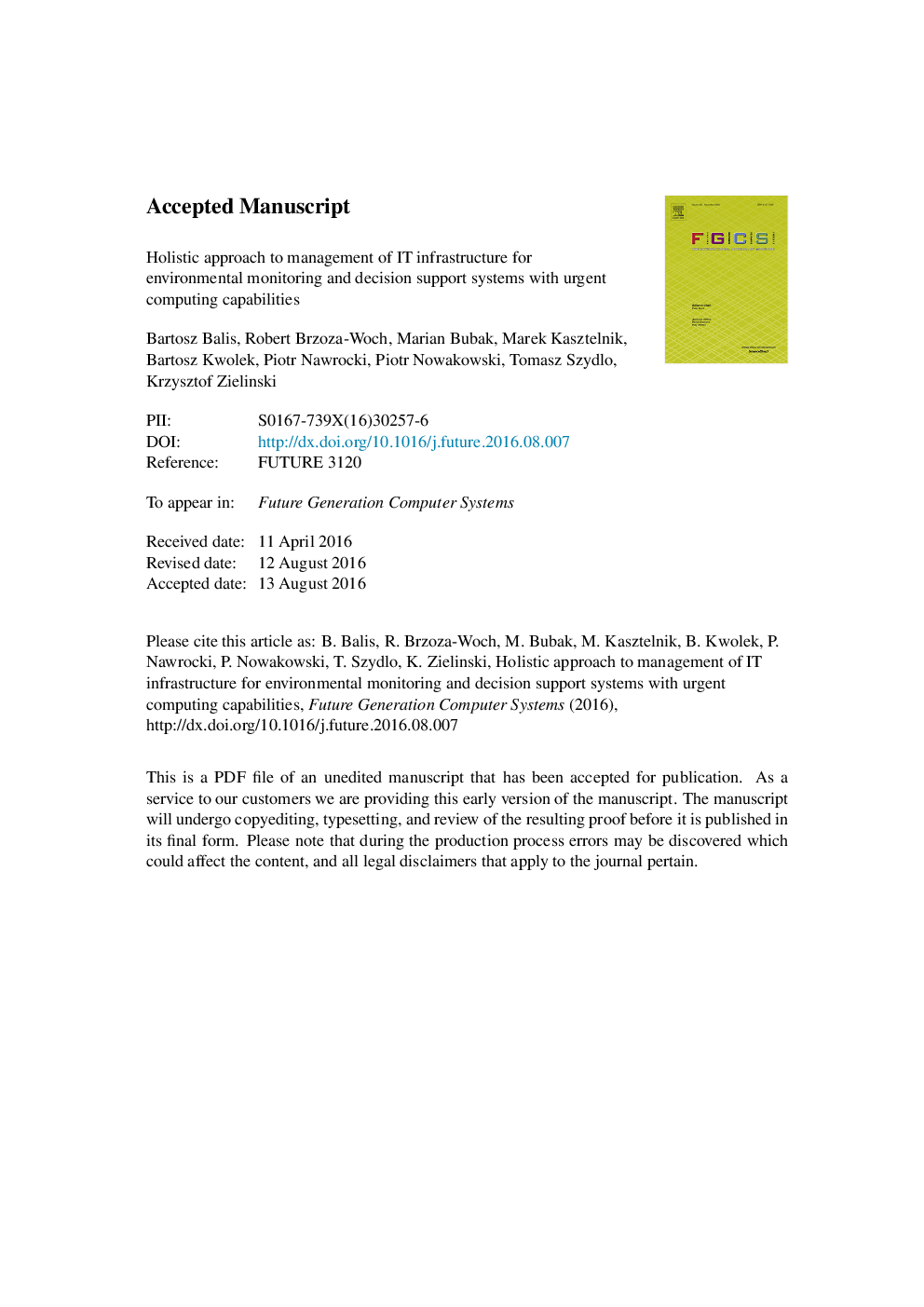ترجمه فارسی عنوان مقاله
رویکرد جامع به مدیریت زیرساخت فناوری اطلاعات برای نظارت بر محیط زیست و سیستم های پشتیبانی تصمیم با قابلیت های محاسباتی فوری
عنوان انگلیسی
Holistic approach to management of IT infrastructure for environmental monitoring and decision support systems with urgent computing capabilities
| کد مقاله | سال انتشار | تعداد صفحات مقاله انگلیسی |
|---|---|---|
| 103338 | 2018 | 62 صفحه PDF |
منبع

Publisher : Elsevier - Science Direct (الزویر - ساینس دایرکت)
Journal : Future Generation Computer Systems, Volume 79, Part 1, February 2018, Pages 128-143
ترجمه کلمات کلیدی
مدیریت زیرساخت فناوری اطلاعات، محاسبات فوری، محاسبات محیطی، مانیتورینگ هوشمند، اینترنت چیزها، پردازش ابری،
کلمات کلیدی انگلیسی
IT infrastructure management; Urgent computing; Environmental computing; Smart levee monitoring; Internet of Things; Cloud computing;

